Knee Arthritis III-IV Degree — Bilateral Total Knee Replacement and Rehabilitation: treatment in the Best Hospitals in the World
Treatment prices are regulated by national law of the corresponding countries, but can also include additional hospital coefficients. In order to receive the individual cost calculation, please send us the request and medical records.
Joint Replacement
- Hip replacement
- Total knee replacement
- Shoulder joint replacement
- Total elbow replacement
- Hip replacement in neck fracture
- Total knee replacement and rehabilitation
- Hip replacement and rehabilitation
- Bilateral hip replacement
- Bilateral hip replacement and rehabilitation
- Bilateral total knee replacement
- Orthopedic rehabilitation
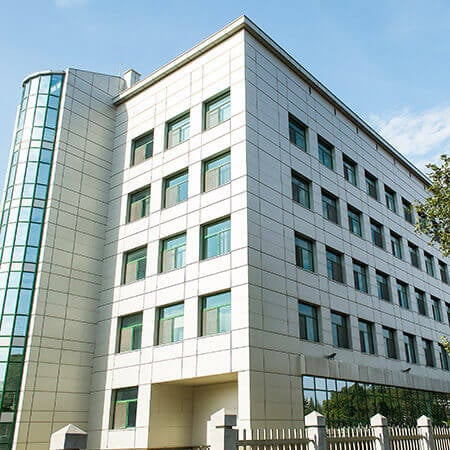
Department of Adult and Pediatric Orthopedics, Trauma Surgery, Foot Surgery, Hand Surgery and Rheumatology
The Department of Adult and Pediatric Orthopedics, Trauma Surgery, Foot Surgery, Hand Surgery and Rheumatology offers the full range of diagnostic and therapeutic services in its areas of specialization. The key areas of work of the department's doctors include large joint arthroplasty, arthroscopic interventions on the knee, hip, and shoulder joints, conservative and surgical treatment of foot and hand diseases and deformities, rheumatic joint lesions, orthopedic diseases in children, and musculoskeletal injuries. The key to successful clinical practice is the professionalism and unique experience of the department's medical team, combined with the advanced infrastructure and state-of-the-art equipment. The department has 5 operating rooms equipped with the latest technology. Most surgical interventions are performed using minimally invasive techniques, due to which, in the shortest possible time, the patient is verticalized, their mobility is restored, and a pronounced pain syndrome is excluded. The department annually performs more than 4,500 surgical interventions, including especially complex ones, so the specialists at the medical facility are rightfully proud of their impressive clinical experience in the surgical treatment of orthopedic diseases. Over the years, the department has gained an excellent reputation not only in Germany but also far beyond its borders.
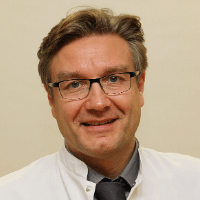

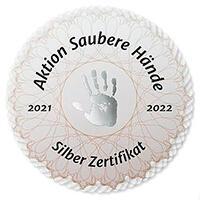

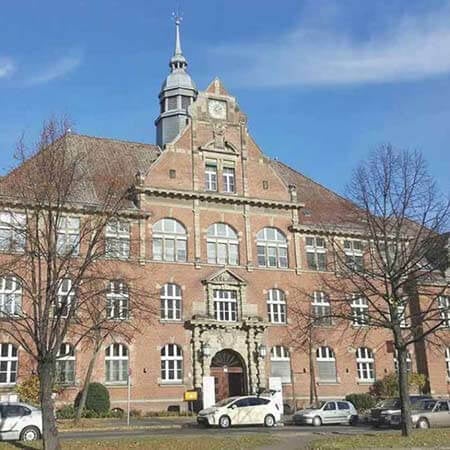
Department of Adult and Pediatric Orthopedics, Trauma Surgery and Arthroplasty
The Department of Adult and Pediatric Orthopedics, Trauma Surgery and Arthroplasty provides the full range of medical services in the areas of its competence. The department's team of doctors treats patients with diseases and injuries of the musculoskeletal system, joints, bones, tendons, ligaments, and muscles. Orthopedists specialize in partial and total knee, hip, and shoulder replacement surgery, as well as successfully perform revision arthroplasty. Doctors perform arthroplasty at the EndoCert certified Maximum Care Center for Joint Replacement Surgery. The department also has the status of a regional Trauma Center Berlin-Brandenburg, where both common household injuries and severe multiple injuries are effectively treated. The department's team of doctors has a perfect command of advanced conservative and surgical treatment methods in the area of its specialization. Joint replacement surgery is performed here using minimally invasive techniques, which allows the patient to get back on their feet and get rid of pain as quickly as possible. The department has also gained vast experience in arthroscopic treatment of pathologies of large joints and injuries of the tendons, ligaments, and muscles. The department uses an innovative method of cartilage tissue restoration called autologous chondrocyte implantation. Patients of the medical facility receive personalized medical care in comfortable conditions.
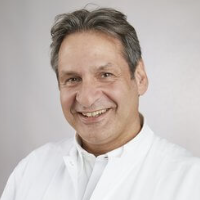



Department of Trauma Surgery, Orthopedic Surgery and Foot Surgery
The Department of Trauma Surgery, Orthopedic Surgery and Foot Surgery offers the full range of modern diagnostic tests for the detection of musculoskeletal diseases, as well as many effective treatment methods for their elimination. Moreover, the department enjoys the status of the Center of Excellence for Trauma Surgery, so trauma surgeons working in the medical facility have a rich and unique experience in the treatment of patients after both simple common and especially complex injuries, including traumatic brain injuries, spinal injuries, polytrauma, injuries of the internal organs, etc. In addition to the treatment of injuries, a special focus is on arthroscopic interventions, joint replacement surgery, interventions to treat foot diseases and deformities, as well as surgery to resect soft tissue tumors. The surgical treatment is provided in the high-tech operating rooms with advanced surgical instruments and computerized systems for the most effective interventions with minimal damage to the healthy adjacent tissues.




Grade 3-4 gonarthrosis leads to chronic pain, lameness, and deformity of the lower extremities. A person loses the ability to work, when walking, he leans on a cane, and if two joints are damaged at once, he may completely lose the ability to walk. But even the most severe cases of arthrosis are treatable. Foreign orthopedic centers offer bilateral knee replacement surgery. Replacement surgery allows solving the problem of gonarthrosis once and for all. The patient with this disease can get rid of chronic pain and return to an active life. Feel free to contact the specialists in Booking Health: we will help you find the most suitable hospital and organize your trip.
Content
- What is bilateral replacement surgery?
- Benefits of single-stage treatment
- Benefits of two-stage treatment
- How is the surgery performed?
- Early rehabilitation
- Late rehabilitation period
- Results of two knee replacement and rehabilitation
- Why is it worth undergoing medical treatment abroad?
- Treatment in European hospitals with Booking Health
What is bilateral replacement surgery?
Bilateral knee replacement differs in that doctors perform endoprosthetics of not one, but two joints. This is necessary if both of them are affected by osteoarthritis. The treatment can be single-stage or two-stage.
The doctors mostly use a two-stage approach. Bilateral total knee is replaced in the course of two surgical procedures, the interval between which is 3-6 months. The patient is operated on, then he fully recovers, and after that he has the second surgery to replace the knee on the other side.
In different hospitals, the intervals between surgical interventions are different. Although most doctors operate on the patient after 3-6 months, other approaches may sometimes be used as well. The break may be longer: in some patients, it reaches several years. In other situations, the interval is minimal: the patient is operated on again in 2-3 weeks, that is, immediately after the end of the early rehabilitation period.
A single-stage bilateral replacement surgery implies a total knee replacement within just a single operation. These operations are more traumatic, but they can shorten the overall period of hospitalization, rehabilitation and the time to achieve the final results of the surgical treatment of osteoarthritis.
Cost of the bilateral total knee replacement surgery starts from €28,700. You can find prices for other treatment options and rehabilitation in knee arthritis on the Booking Health website.
The best hospitals in Europe for knee replacement and knee rehabilitation are:
- Vitos Orthopedic Clinic Kassel
- Hospital Kassel
- Academic Hospital DRK Berlin Westend
- St. Antonius Hospital Eschweiler
Benefits of single-stage treatment
For many patients, single-stage total knee replacement for arthritis seems more attractive for a number of reasons:
- Only one surgical procedure instead of two.
- One recovery period instead of two.
- Less time spent before the final outcomes are achieved.
- Less financial expenses for treatment.
- Late phase of rehabilitation is easier and more effective.
It is easier to decide on one operation for total bilateral knee replacement. In addition, a person heals from arthrosis much faster and returns to an active life. In just 3-4 months, he can walk without support, and after six months, his physical condition is the same as it was before the development of arthritis.
The single-stage bilateral total knee replacement is less expensive. Although a person still needs to buy two artificial joints, and the surgery to implant them at one time is more expensive, in the end he can save money. The costs of diagnostics and rehabilitation are reduced. In addition, the overall length of hospital stay is reduced as well.
But there are drawbacks: if the single-stage approach is used for knee replacement, the risk of early postoperative complications increases. The operation is more traumatic, it lasts twice as long, blood loss and the volume of blood transfusions increase. Therefore, doctors try not to resort to the single-stage total knee replacement, if the patient has concomitant diseases, his age is over 85 years old.
Benefits of two-stage treatment
Bilateral total knee replacement in two stages also has some benefits:
- More sparing surgical procedures, which are less likely to give early complications.
- Early rehabilitation period is easier.
- After each of the two surgical procedures, a person spends less time in the hospital than after replacing two knees at once.
- Less one-time financial costs: a person pays only for part of the treatment, and he will have to pay for the second part only after a few months.
At the same time, this approach has many drawbacks as well. The long-term functional outcomes are usually worse. Late rehabilitation is more difficult. The time spent by the patient on treatment increases, the total duration of hospital stay increases, and the recovery has to take place twice. Given that rehabilitation takes several months, this is burdensome for a person.
How is the surgery performed?
The surgery is performed either under general or spinal anesthesia. The doctor makes an incision in the knee, removes cartilage and bone structures, and implants the components of the endoprosthesis.
To treat arthritis, orthopedists use different types of prostheses:
- Unconstrained.
- Partially constrained.
- Fully constrained.
Whenever possible, unconstrained prostheses are used for primary knee replacement. They provide better function while wearing out more slowly. However, the implantation of such prostheses is possible with the preserved ligamentous apparatus, knee stability, and normal axis of the lower limb.
If the unconstrained endoprosthesis cannot be implanted, partially constrained ones are used. Different types of such prostheses can be implanted with cruciate ligament replacement or removal. The preservation is preferable, since it increases the service life of the endoprosthesis: its fifteen-year survival rates increase from 77% to 90%.
For revision (repeated) bilateral knee replacement, as well as for primary replacement surgery in the most severe cases, fully constrained prostheses are used. They replace the knee along with the ligaments. The functionality of such prostheses is lower, and they wear out faster.
In Europe, doctors implant endoprostheses very accurately, under the guidance of computer-assisted navigation. It ensures high precision of this surgical procedure. The accurate placement reduces the risk of aseptic loosening of the endoprosthesis, thus significantly extending its service life.
Early rehabilitation
After knee replacement, the early rehabilitation period lasts about 2 weeks. The doctors try to activate the patient as early as possible. The timing of when you can walk depends on the method of anesthesia used: general or spinal anesthesia. After general anesthesia, you can get out of bed the next day.
Early activation is especially important for patients over 85 years old and people with concomitant internal diseases. The more active the early rehabilitation period is, the lower the risk of complications.
After bilateral knee replacement, the early rehabilitation period can be somewhat more difficult. The trauma is more extensive, the person loses a lot of blood. After the operation, he is weakened. On average, the hospital stay is longer than with just one knee replacement. However, this disadvantage is compensated for in 2-3 weeks. The late phase of rehabilitation after the single-stage knee replacement surgery is not only easier, but also gives better results.
The most important task of the early stage of rehabilitation is to improve blood circulation, relieve swelling, pain, inflammation, and prevent complications. The patients receive antibiotics to prevent infections and anticoagulants to prevent thromboembolic complications. Painkillers are used to relieve pain and provide an ability to do therapeutic exercises. In the early days, the exercises are performed while lying in bed. The duration and distance of walking with support on crutches or walkers gradually increases.
Late rehabilitation period
Late rehabilitation after the replacement of both joints is easier than after the replacement of only one of them due to osteoarthritis of the second knee. It also provides much better functional outcomes.
If a person suffers from arthrosis of both knees, but only one of them was operated on, this means that he is still experiencing pain in the second joint. The limb may be deformed. In many patients, the knee is unstable. All this interferes with the support on the sore leg when walking, does not allow to fully engage in therapeutic exercises and prevents the formation of the correct walking stereotype.
After the single-stage bilateral knee replacement, pain in the operated knees also worries the patient, but it gradually relieves and after a few weeks it becomes minimal. At the same time, with arthrosis untreated on the second leg, the situation is the opposite: the painful sensations only intensify. A person who has one joint replaced rests on the unoperated leg. The load on it increases, which leads to the rapid progression of arthrosis. This effect is especially pronounced in the first 3 months after surgery.
The most important in the late phase of rehabilitation is therapeutic exercises. A person does physical exercises in the gym, in the pool, and works on special simulators. In the first few weeks, robotic systems are often used as well. A person builds muscles, trains balance, trains gait and everyday skills. In parallel, the patient receives physiotherapy, massage, and procedures to restore proprioceptive sensitivity (sensation of the position of body parts).
The specialists from different medical fields take part in the rehabilitation process: rehabilitation therapists, instructors in therapeutic exercises, physiotherapists, massage therapists. The patient is examined, and the level of loads is periodically adjusted. Doctors take into account not only the physical condition of a person, but also the presence of concomitant diseases: many have them, because most of those operated on for arthrosis are elderly people.
Rehabilitation abroad is safe and effective. It also takes place in a comfortable environment. The specialists work not only with the physical, but also with the psychological state of the patient, increasing his motivation. After 3-4 months, the knee function is completely restored.
Results of two knee replacement and rehabilitation
As a result of a successfully performed operation and a full-fledged rehabilitation, a person can completely restore the limb's ability to support, range of motion and muscle mass. He can walk, run, swim, ride a bicycle and do any job.
After the single-stage replacement of two knees, the final results are usually better than after the two-stage treatment. Research shows that single-stage bilateral replacement surgery provides the following benefits:
- Better range of motion in the knee.
- Less pronounced pain syndrome, which can be relieved faster during the rehabilitation process.
- Fewer people need to use such support aids as a cane.
- Patients return to work more often.
- They have higher levels of physical activity.
- According to the survey data, better satisfaction with the surgery outcomes.
Most of the benefits are associated with higher rehabilitation options. Osteoarthritis is cured on two legs at once, and a person can fully engage in therapeutic exercises, train joints and muscles, as well as practice skills.
Why is it worth undergoing medical treatment abroad?
Knee replacement surgery can be performed in any country in the world, but the results are not the same: with well-performed bilateral replacement surgery, there is less risk of complications, better functional outcomes, and the implanted artificial joints will last longer.
Here are several reasons for you to seek medical help in one of the European hospitals:
- The operations are performed by the specialists who are considered one of the best in the world.
- Extensive experience in bilateral knee joint replacement, including single-stage bilateral knee replacement.
- State-of-the-art equipment in hospitals and rehabilitation centers.
- Implantation of the most advanced types of endoprostheses that will last for decades.
- Preference is always given to those types of prostheses that allow preserving the patient's own ligaments.
- Successful replacement surgery even in the most severe cases, including grade 4 arthrosis with complete immobility of the joints, severe deformity of the limbs, operations to replace the knees again (revision replacement surgery).
- Endoprostheses are implanted under the guidance of computer-assisted navigation, and therefore doctors achieve an ideal accuracy with an error of no more than 0.1 mm.
- The risk of the endoprosthesis loosening is 8 times lower due to the use of computer-assisted navigation.
- Most patients after knee replacement surgery will not need repeated surgical interventions in the future.
- Full-fledged rehabilitation will allow achieving complete restoration of the function of the lower extremities.
Treatment in European hospitals with Booking Health
To undergo treatment in European hospital, please use the services of Booking Health. On our website, you can find the cost of treatment in different hospitals, compare prices and book a medical care program at a favorable price.
Please contact the specialists in Booking Healt to undergo treatment in European hospital. Here are our benefits for you:
- We will choose the best European hospital whose doctors specialize in knee replacement surgery.
- We will help you overcome the language barrier, establish communication with your attending physician.
- We will reduce the waiting time for the start of the medical care program and book a doctor's appointment on the most suitable dates.
- We will reduce the price. The cost of treatment in European hospitals will be decreased due to the lack of additional coefficients for foreign patients.
- We will take care of all organizational issues: documents for entering the country, transfer from the airport, hotel, interpreter, etc.
- We will prepare a program and translate medical documents. You do not have to repeat previously performed diagnostic procedures.
- We will provide communication with the European hospital after the completion of your medical care program.
- We will organize additional medical examinations and treatment in European hospitals, if necessary.
- We will buy medicines abroad and forward them to your native country.
- We will help you keep in touch with the European hospital after the completion of the program.
Booking Health makes treatment in European hospitals easier, faster and cheaper. We will fully organize your trip, and you will only have to focus on restoring your health.
Authors: Dr. Nadezhda Ivanisova, Dr. Sergey Pashchenko

